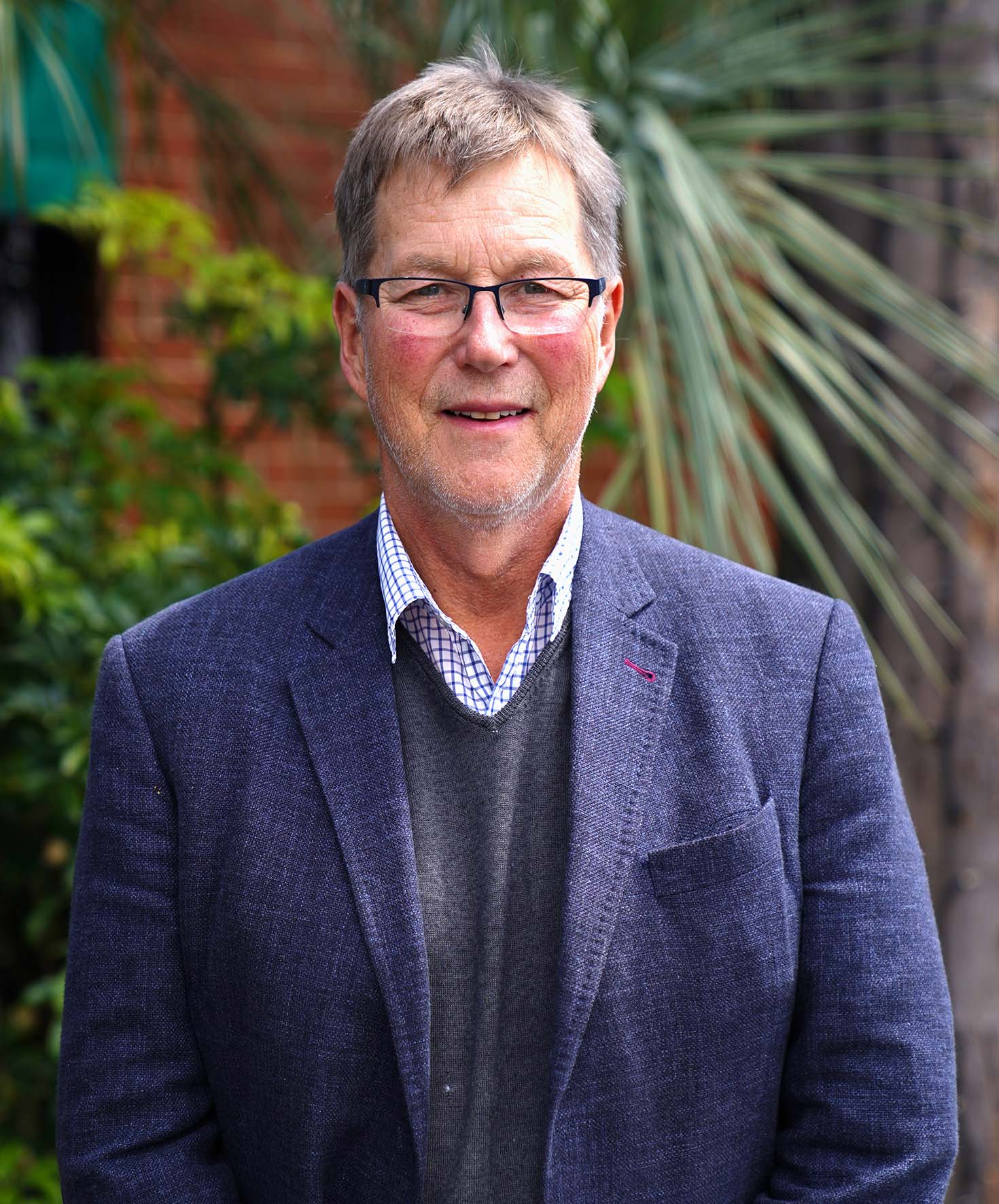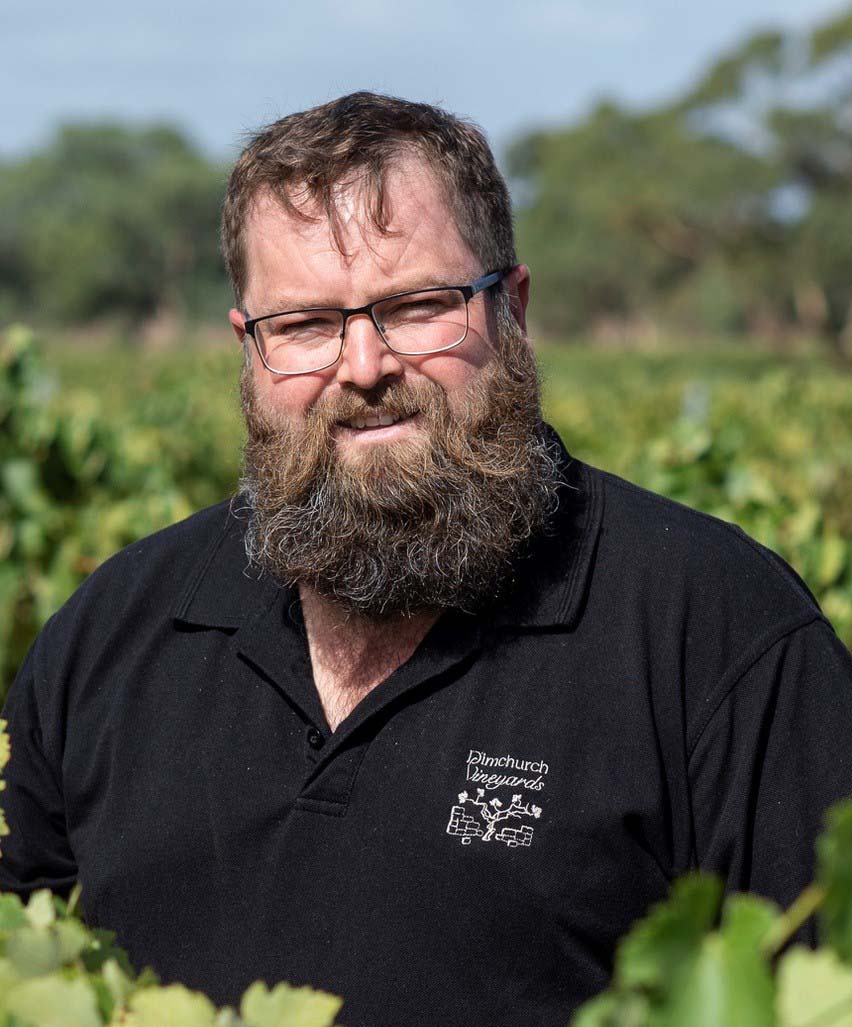Policy platform

Risk resilience and preparedness
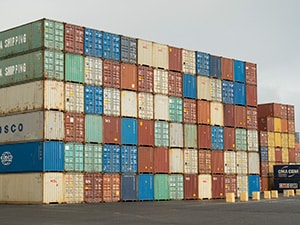
Export enhancement
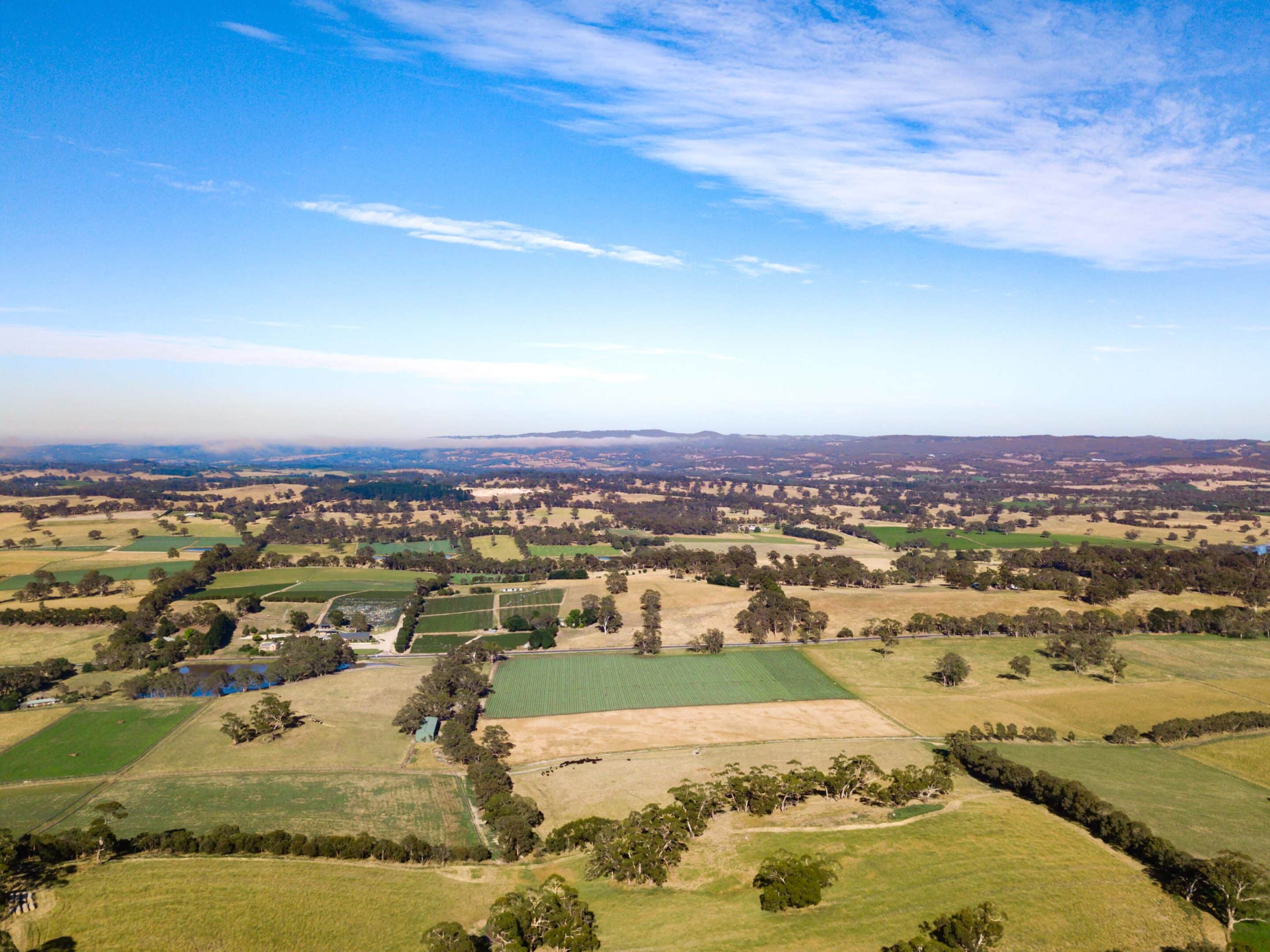
Regional development
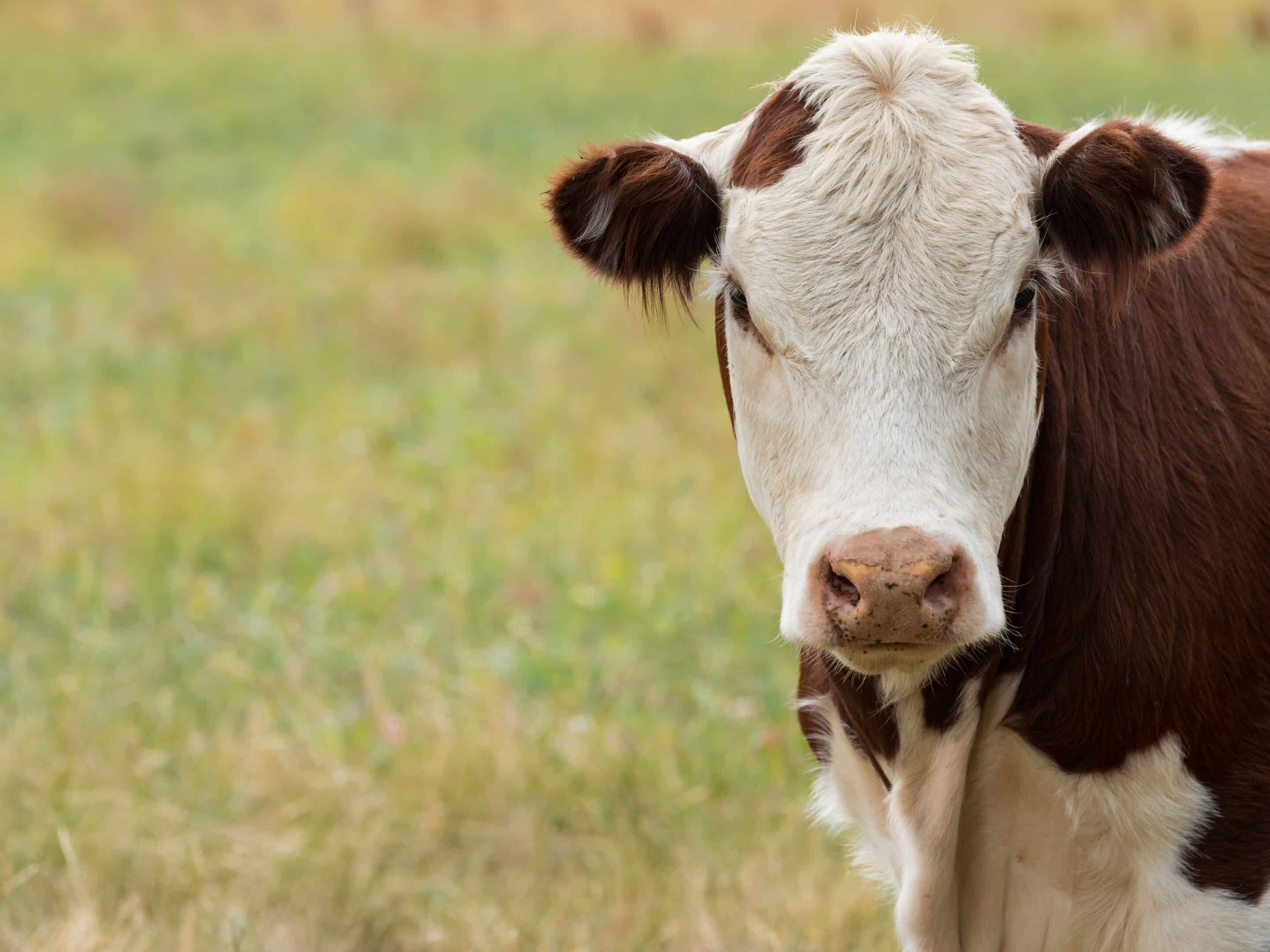
Biosecurity
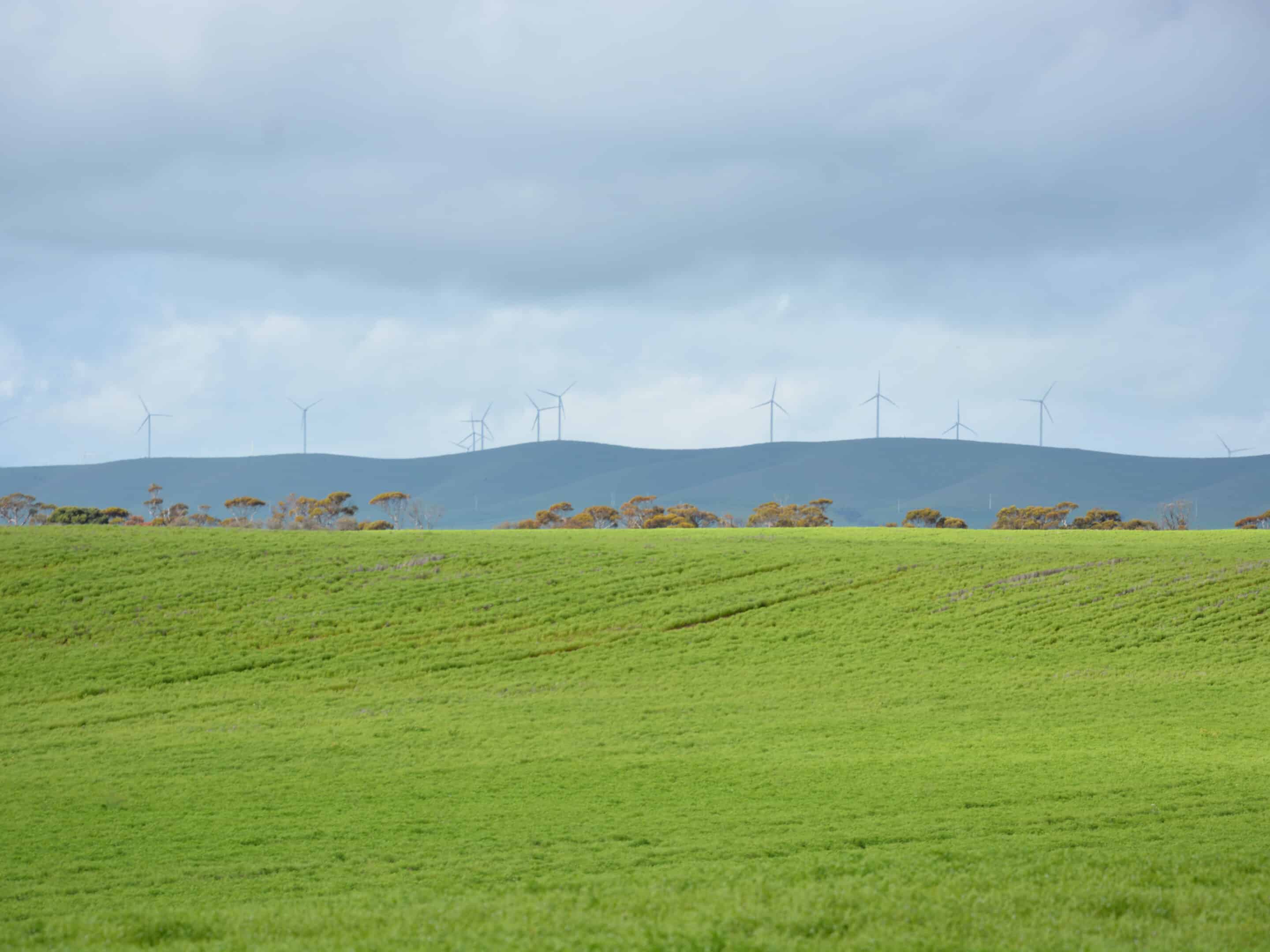
Productivity and sustainability
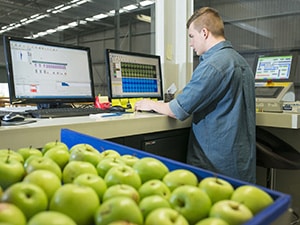
Skills and Capability Development

Research and development

Planning, Native Title and Mining
Risk resilience and preparedness
Primary producers, rural communities and the environment are challenged by a range of adverse events, mostly out of their control. However, planning to minimise adverse impacts through building greater resilience and preparedness can support risk management and recovery efforts.
Emergency management
Preparing for risks and being able to respond and recover quickly from adverse events that impact economic growth and community wellbeing is one of the Department of Primary Industries and Regions’ (PIRSA) key priorities. It is an area of ongoing engagement between PIRSA and PPSA as well as its member organisations.
The main factors giving rise to adverse impacts are:
- Climatic conditions leading to drought and frost
- Emergency events such as bushfires, floods, storms, earthquakes and heat waves
- Biosecurity incursions and associated market access risk
- Food safety incidents
All of these events have a similar impact on primary producers, rural communities and the environment. However, they are currently managed by different structures, often in different jurisdictions and with very different support provisions for individuals, communities, the environment and infrastructure.
PIRSA is a support agency within the SA State Emergency Management Plan (SEMP) which governs the state’s emergency management response and recovery. Where an event triggers the activation of the plan, PIRSA is responsible for the provision of immediate agriculture and animal relief services and the identification and facilitation of recovery needs for primary producers and regional communities.
In emergency management events, the role of Primary Producers SA as a participating agency is to assist PIRSA in response and recovery through liaison with affected primary producers and commodity groups, and by coordinating industry advice and communications. This was the case during the 2022-23 River Murray floods, which saw Livestock SA take a leading role in fodder relief, and the SA Dairyfarmers’ Association co-designing projects for impacted primary producers, including grants to help rebuild irrigation infrastructure.
There is increasing awareness of the multi-hazard environment in which primary producers operate and the increasing risks of climate-related hazards. PPSA will be undertaking a project in collaboration with PIRSA to better support primary producers in dealing with impacts of compounding and complex disasters.
National Drought Agreement
The National Drought Agreement (NDA) has been in place since 2019 and sets out a joint approach to drought preparedness, responses and recovery, with a focus on accountability and transparency in delivering drought policy and programs. The current NDA is due to expire in June 2024 and will require intergovernmental agreement to establish its next iteration, informed by the findings and 33 recommendations of the Independent Review held in 2022.
The review found that while drought is viewed as a recurring part of the Australian climate and a business risk that should be anticipated and planned for, policy makers should accept the impact translates beyond individual farm businesses. The impact of prolonged drought extends to public good matters such as animal welfare, environmental degradation, loss of biodiversity, farm household income and personal health and wellbeing of farmers, while the negative economic and societal impact is felt across regional communities. As such, there remains a significant role for governments to support Australian farmers and their communities in preparing, responding and recovering from drought events.
While the NDA framework may not resolve the fragmentation of government support measures in the next drought, PPSA believes it has supported a more targeted and integrated approach by state governments to risk mitigation, preparedness and recovery.
Future Drought Fund
The Future Drought Fund (FDF) operates across the Australian Government and state and territory governments, bringing together regional organisations, local government, communities, industry and other stakeholders. Coordination and collaboration between all entities is required to effectively deliver the broad range of resilience and drought preparedness activities under the FDF. PPSA has engaged directly with the FDF Board and has been working closely with FDF providers in SA.
The Future Drought Fund Advisory Group (FDAG) has been established by PIRSA to provide strategic industry, government and community intelligence and feedback.
Part of the FDAG’s role is to support programs to align with strategic objectives and priorities of government, industry, and regions in SA, to help ensure said programs meet the needs of local agricultural industries.
As a member of the FDFAG, PPSA is directly involved in the assessment of regional priorities and co-design of activities with partners for the South Australian Drought Resilience Adoption and Innovation Hub (SA Drought Hub) led by the University of Adelaide, and the foundational year of the Farm Business Resilience Program and the Regional Drought Resilience Program run by PIRSA.
Export Enhancement
The majority of SA’s primary industries are fully exposed to global conditions of supply and demand, be they inputs to production imported into the state or markets for products exported. Most South Australian produce is exported out of the state and accounts for over 50 per cent of SA’s merchandise exports.
Despite severe trade disruptions and supply chain breakdowns caused by COVID-19 and international conflicts, South Australian primary producers continued to produce high-quality products and tapped into existing and new export markets to offset the significant falls in exports to China, SA’s major trading partner.
Longer term, the sustainability credentials of SA’s primary production sector will need to be effectively communicated to satisfy domestic and international market demands, and be readily translated into environmental, social, and governance (ESG) reporting metrics.
The sustainability demands of governments, businesses and consumers both at home and abroad are increasing in complexity and number. These demands serve as potential market access risks to SA’s primary production sector, particularly given the reliance of this sector on interstate and international trade.
Trade and market access
From the challenges of physically delivering produce to international markets, to historically highly priced farm inputs, the state’s primary producers rely on State and Commonwealth trade policies to continue sustainably producing food, beverages, and fibre.
Global supply chain challenges, exacerbated by ongoing impacts of COVID-19 and the recent conflict in Ukraine, highlight the trade-exposed nature of the sector. Additionally, key exports to China ceased for many commodities at the end of 2020 due to significant trade barriers. This shock has been most pronounced and enduring for the wine, wine grapes, seafood and forestry sectors during this period.
Additionally, issues such as sustainability, climate policies, traceability, quality assurance, biosecurity requirements of importing countries and related non-tariff market access barriers all pose hurdles for producers to navigate in the international market.
Through collaboration with the SA and Commonwealth governments, as well as national representative bodies, PPSA has continued to ensure SA producers are at the forefront of policy settings, enabling them to sustainably grow world-class produce and access an array of export markets.
Australian Agricultural Sustainability Framework
PPSA has been engaged through its membership of the NFF in the development of the Australian Agriculture Sustainability Framework (AASF). The AASF is a key market access tool designed to communicate the sustainability status and goals of Australian agriculture to markets and communities.
Across the agricultural sector, a variety of commodity-specific sustainability frameworks, certifications, and other schemes exist to substantiate sustainability efforts and progress. These have been developed to meet the increasingly complex sustainability imperatives coming from corporate, consumer and government entities.
The AASF is a principles-based uniting concept that amplifies the efficacy of existing domestic and international industry-specific sustainability frameworks by articulating 17 agreed universal principles and offering a cohesive structure to sectoral efforts.
As the framework is further developed through the AASF Community of Practice (CoP), these principles can be used to evaluate how on-farm activities, existing industry sustainability frameworks, certifications and other sustainability schemes fit into national and international contexts to satisfy the shifting sustainability demands of markets.
Importantly, this framework may help convey the sustainability progress of South Australian primary production within nationwide efforts to outside stakeholders, who may view the sector as a singular entity rather than distinctly different industries and regions.
PPSA members and SA producers can utilise their respective industry sustainability frameworks, or other relevant sustainability certifications and schemes, to identify, report or track sustainability goals or indicators relevant to their locale and operation. These goals or indicators can be compared to the principles of the AASF, showing how SA producers are working within national priorities and uniting elements of sustainable agriculture.
PPSA recognises the requirements of certain sustainability credentials or reporting standards can be difficult for individual producers to understand, and public and private policy should seek to clarify these complexities and avoid unnecessary cost.
PPSA will be keeping PIRSA updated on the potential state-wide application of the AASF and supporting policy and programs to enhance export competitiveness. This includes promoting the continued sustainability credential transparency and education, producer uptake of frameworks or certifications relevant to their production setting, and a policy environment in SA that does not prescribe approaches to sustainability or put up other barriers to progressive on-farm practice improvement.
Regional Development
Regional communities are the economic and social fabric of our State. Without vibrant regional communities, the primary industry sector cannot sustain its position as SA’s major exporter and an employer of one in five South Australians.
A strong and consistent input at the three tiers of government to regional development projects and priorities is more likely to result in investment in the right areas, delivering economic benefits for government and the community.
PPSA partners with PIRSA in its role to support SA’s regions to grow, diversify and prosper by fostering and supporting regional projects that enable new economic opportunities and build and strengthen regional communities. PPSA has also contributed to national level campaigns and advocacy for regional investment from the Federal Government.
As a champion for the primary production sector, PPSA has been proud to contribute to the independent judging panel of the SA Agricultural Town of the Year Award, a program that recognises towns which are excelling in agricultural practices and the flow on effect they have on communities.
South Australian infrastructure priorities The food, fibre and wine value chains are the foundations of regionalisation. South Australian regional economies and communities are reliant on these value chains to provide the opportunities that underpin the full spectrum of skilled, semi-skilled and unskilled employment in these communities. These value chains are also the foundation of associated businesses and services.
Like all communities, the regional communities that support the primary industries sector need adequate services. Availability of adequate housing for regional workers continues to be a major challenge to the agricultural sector, particularly at peak times such as vintage and harvest. Services such as health care, schools, mental health care, amenities and connectivity – both physical and digital – are imperative to attracting the best and most skilled workforce to our regions.
PPSA has continued to work closely with the State Government to identify key investments that will have cross-commodity benefit, while leading the sector’s input into the development of the next 20-Year State Infrastructure Strategy.
biosecurity
Effective biosecurity arrangements are fundamental to the prosperity and sustainability of SA’s $17.3 billion primary production sector. The strength of these arrangements underpins both domestic and international market access of agricultural commodities, and directly impacts on-farm productivity and landscape biodiversity.
Regulatory coordination
The Biosecurity division of PIRSA manages the potential risks to SA from pests and diseases, food borne pathogens and misuse of agricultural and veterinary chemicals relating to primary industries. The division leads PIRSA’s emergency responses, including biosecurity incursions and bushfire responses.
PPSA and its members have led the sector’s engagement with PIRSA in preparation and response activities to biosecurity threats, working with the Commonwealth on coordinated state and federal biosecurity programs.
The South Australian Government is a signatory to the Intergovernmental Agreement on Biosecurity (IGAB) and works with the Australian and state and territory governments as part of a cohesive national biosecurity system to maintain a robust, science-based biosecurity system that protects Australia from the damaging impact of pests and diseases.
Given the importance of agriculture to the South Australian economy, we must ensure SA is prepared for any potential incursion that may threaten or harm our plant and animal health status, markets and trade capacity. This requires public investment and commitment from all tiers of government to strengthen the capacity of our biosecurity system.
In 2023, PPSA welcomed state budget initiatives including $25 million over two years to undertake significant emergency fruit fly response activities, subsidising the cost of eID tags to enable the transition of sheep and goat producers to electronic identification, biosecurity funding to protect against exotic animal diseases and $3.7 million over four years to combat electric ants, varroa destructor (mite) and polyphagous shot-hole borer (beetle).
Legislative reform
The development of a new Biosecurity Act for South Australia represents a significant opportunity to modernise the current policy framework and address emerging industry concerns regarding the introduction and spread of pests, diseases, and invasive species.
Biosecurity is an acutely high priority to the primary industries sector given contemporary threats on Australia’s borders. All industry strategic plans identify biosecurity as being an essential priority, with industry contributing significant resources to address specific biosecurity priorities. The new Act will need to accommodate these different approaches and support industry response plans for each specific threat.
PPSA and its members have led the collation of priorities from across industry to support the Act’s development, ensuring adequate protection and clarity on managing biosecurity risks. The interest and concerns cover the full spectrum of the biosecurity continuum, from preventing incursions to managing introduced plants and animals, as well as their ongoing monitoring and surveillance, to reduce the ongoing impact of biosecurity risks to the primary production sector.
Exotic animal disease preparedness
PIRSA Biosecurity interacts with each industry sector independently in developing priorities and programs, preparation and response. However, several cross-sectoral biosecurity priorities have been progressed through the support of PPSA.
Together with the livestock industry, PPSA has been working with PIRSA on Exotic Animal Disease preparedness and surveillance projects, including the high-level threats of Lumpy Skin Disease, African Swine Fever, and Avian influenza.
In conjunction with our livestock commodity members, PPSA has also been representing SA’s interests in national forums convened with the Federal Department of Agriculture, Fisheries and Forestry and the NFF to manage the ongoing outbreak and significant risks arising from the detection of Foot and Mouth Disease in Indonesia in 2022. Industry demanded stronger border protection measures in Australia, with ramped up efforts to increase surveillance and detection at entry points of passengers and freight, which remain in place today.
Additionally, heightened biosecurity awareness in the broader community including Biosecurity Response Zones at international airports within Australia and the installation of foot mats at events such as the Royal Adelaide Show aim prevent the entry and/or subsequent transmission of FMD through stronger community engagement.
Spray drift management
The Chemical Stewardship Roundtable held in September 2022, facilitated by PPSA, aimed to investigate the adequacy of training and compliance requirements for using agricultural chemicals in SA. The event was attended by over 40 delegates, with discussion leading to the development of an action plan relating to improving industry culture, communication, education, training and compliance to drive practice change reduce the incidence of spray drift. A range of actions were developed and assigned to lead organisations.
PPSA developed a training resource to support the delivery of chemical applicator training, while regular updates on compliance activities continue to be provided by PIRSA Biosecurity staff in PPSA-PIRSA quarterly meetings. PPSA also engaged NFF member organisations in seeking to understand best practice management plans adopted by other sectors such as cotton and sugar.
Commodity groups are taking the lead in targeted industry communication, with Grain Producers SA launching its Spray Drift Pledge campaign in conjunction with CropLife Australia to educate grain producers on the risks and best practice principles of mitigating spay drift through completing an online questionnaire. This remains a significant risk for industry to address and GPSA is now convening an industry working group on behalf of broadacre agriculture.
productivity and sustainability
South Australia’s primary industries are directly exposed to extreme weather events and the impacts of a changing climate, while simultaneously remaining trade exposed to global markets demanding greater action on emissions reduction and proof of sustainability credentials at farm-level.
Climate change policy
South Australian primary producers have been on the front-line of a changing climate and continue to adapt to emerging weather risks to maintain productivity. PPSA believes the sector needs to be recognised for the role it plays in managing landscapes and our contribution to global food security in this changing environment.
Water scarcity and climate variability are ever-present challenges, which is why the sector invests in considerable research and development activities towards water-efficient farming methods, drought tolerant crop varieties, and the extension of sustainable land management practices. On-farm practice change is being accelerated through the Future Drought Fund projects to build climate resilience, including the flagship South Australian Drought Resilience Adoption and Innovation Hub.
To progress and promote climate activity, government and the corporate sector have developed various policies, programs, and incentives. Producers are increasingly being presented with expectations and opportunities to participate in a low emissions future, primarily through reducing emissions of greenhouse gases and increasing sequestration of carbon from the atmosphere, broadly classed as climate-related activities.
The South Australian Government has set goals to reduce SA’s greenhouse gas emissions by more than 50 per cent below 2005 levels by 2030, and to achieve net zero emissions by 2050. In May 2022, SA declared a climate emergency and committed to restoring a safe climate by transforming the economy to net zero emissions.
In accordance with the national reporting framework, agriculture has been identified as a major source of greenhouse gas emissions in SA. South Australia emitted 21.5 million tonnes of carbon dioxide equivalent (MtCO2-e) in the 2021 financial year. This represents a 42 per cent reduction in greenhouse gas emissions from the 2005 financial year.
In engaging with the state’s emissions reduction strategy, PPSA expects other sectors across the economy to play their part in reducing emissions. It must be acknowledged that primary producers are making a significant contribution toward net zero through practice change and carbon abatement projects.
Carbon farming
Carbon farming is an evolving area of policy in Australia and overseas, and a great body of work is required to ensure integrity and confidence in carbon accounting and the development of a functioning carbon market. This will require strong engagement of government and industry.
The South Australian Government Carbon Farming Roadmap is a foundational piece of work exploring the landscape for carbon farming in SA. However, more work is still required to build upon industry-led initiatives to address sector carbon neutrality targets and similar programs in other jurisdictions, and we are engaging with both DEW and PIRSA to support its practical implementation PPSA’s approach to carbon farming policy is grounded on sound evidence and the practical realities of primary production in SA. We recognise the opportunities, challenges, and risks to primary producers. PPSA also acknowledges this has become a complex and often confusing area for primary production businesses.
South Australian producers need trusted and independent sources of information or advice to navigate both the opportunities and risks of carbon farming, including understanding carbon decision support tools to identify baseline emissions, and then in making business decisions around balancing and/or participation in carbon markets.
Water policy
A healthy river system is key to maintaining healthy and sustainable river communities and primary production. Water security for irrigated agricultural production is a cross-commodity policy priority for PPSA and its members, working to advance the interests of regional communities in national and regional water allocation plans, including through the implementation of the Murray Darling Basin Plan.
Strong sector engagement in water policy is critical to achieving the right balance in social, economic, and environmental outcomes for the benefit of all South Australians. PPSA recognises the health of the environment is intrinsically linked to both water quality and physical access.
Primary producers need secure access to water as an essential resource to underpin sustainable and profitable primary production. Water quality must be maintained to ensure is fit for purpose and suitable for agricultural and regional community use.
There are opportunities and co-benefits to agriculture from maintaining environmental flows, but producers need confidence in the integrity of the allocation framework, including both transparency and use of robust science in regulating water.
All water allocation frameworks must provide long term secure and affordable access to water for productive purposes, to foster strategic and strong investment in South Australian primary production, supporting vibrant communities, and maintaining a healthy environment.
Skills and capability development
PPSA is committed to ensuring that future workforce needs of the primary production sector will be met by promoting career opportunities from primary school through to post-graduate study in agriculture to the community. We are also focussed on ensuring current and emerging leaders in agriculture are equipped with the necessary skills, networks, and motivation to contribute to the advancement of the South Australian primary production sector.
Skills and workforce availability
Skills and capabilities are regularly identified as a major limitation in driving a productive and sustainable primary industries sector. All commodity groups recognise the need to strongly engage in the attraction of the next generation of agricultural workforce and in identifying solutions to the immediate need for seasonal workers.
PPSA has worked to contribute industry needs and priorities into the education and skills system through representation to the South Australian Skills Commission, its Agribusiness, Food and Wine/Beverages Industry Skills Council (ISC), and meeting regularly with the Department for Education.
Our interest ranges from awareness of primary production and food at the primary and secondary school level, the effectiveness of vocational education and training and university offerings, to the delivery of leadership programs to primary producers.
Promoting careers in agriculture
In recent years, PPSA has implemented a significant body of work through the Educating Kids about Agriculture project, targeted at regional upper primary school level students. A key objective is to prepare curriculum material on a wide range of primary industry topics and to assist teachers in delivering this material.
There is an equally important opportunity to work with educators in developing a similar approach in secondary schools.
PPSA promotes the opportunities available to young people in agriculture through speaking engagements. We also provide financial and in-kind support to the Adelaide University Agricultural Science Students Association (AUASA) and its annual Growing the Future conference.
Safer workplaces
Workplace Health and Safety (WHS) is a priority for PPSA, and through our membership of FarmSafe Australia, we have been active in developing policies and programs that promote enhanced health and safety awareness and practices in the primary industries sector.
PPSA has leveraged external project funding from the National Farm Safety Education Fund in SA, to develop a suite of curriculum-linked resources, aimed at students in years 5. 6 and 7. These resources were launched in 2023 and have been used to directly engage parents, students and the general public throughout the year, including an activation at the 2023 Royal Adelaide Show to educate children about the importance of farm safety.
Leadership capacity building
PPSA is seeking to increase the capacity of PPSA members to represent industry at a state and national level and contribute positively and strongly to local issues affecting primary industries. This has included extending opportunities to participate in PPSA policy forums and industry events through sponsorship or other forms of support.
PPSA has established an internship program to support high potential young leaders through paid work experience, providing insight into the work of farm advocacy groups, development of public policy, and development of professional networks in agriculture.
PPSA also held two co-design workshops with established farm leaders to explore diversity in leadership, with plans to formalise a new program aligned to the former PIRSA Women Influencing Agribusiness and Regions Strategy and other successful industry programs.
Strengthening Indigenous engagement
Improving Indigenous engagement is also a priority, with the aim to foster positive external stakeholder relationships and focus strongly on mentoring and development of industry leaders to improve opportunities to work with First Nations groups in agriculture.
In May 2023, a landmark report commissioned by the NFF underscored the need for better engagement to unlock the economic potential of Indigenous agriculture. The Realising the Opportunity report compiled by KPMG aims to strengthen the economic and cultural empowerment of Indigenous Australians through accessible and collaborative pathways in agriculture, and offers several practical recommendations for industry groups such as PPSA to consider.
While PPSA representatives have been an integral part of the national working group established by NFF to progresses its Indigenous policy work, PPSA as an organisation is at the early stage of improving our engagement with Indigenous cultural awareness.
PPSA will consider the development of a Reconciliation Action Plan (RAP) and capacity building activities to facilitate true two-way learning and engagement between the primary industry sectors and Indigenous people. This will be particularly important as a national approach to harmonise and strengthen Aboriginal heritage protection laws across Australia is progressed, which may give rise to significant changes to South Australian laws in the future.
Research and Development
Agricultural research programs undertaken at the Waite Research Precinct, Roseworthy Campus and similar locations around the state are fundamental in driving the productivity, profitability and sustainability of the South Australian agricultural sector.
A new era for SARDI
The South Australian Research and Development Institute (SARDI) undertakes applied research and development for the innovative advancement of the grains/cropping, wine, horticulture, fisheries and aquaculture, livestock (including wool), poultry, pig, and food sectors.
Gradual reductions in funding to PIRSA by successive governments – with consequential impacts on SARDI – and the demise of Rural Solutions and privatisation of extension, have certainly changed the scope and role of government research and development services.
The refresh of SARDI’s strategic plan for 2023–28 provides the chance to focus SARDI and its research on industry priorities and emerging new opportunities, such as the plant-based protein industry.
PPSA sees great value in a closer working relationship with SARDI and other research providers, through a better understanding of SARDI’s R&D priorities and programs and the opportunity for each industry to inform SARDI of their key priorities.
Proposed university merger
The university sector has played a key role in shaping the future of the delivery of applied agricultural science in SA, while promoting the significant adoption of research outcomes in modern farming systems.
The Waite Research Precinct and Roseworthy Campus remain one of the largest collections of agricultural scientists and research infrastructure within Australia, hosted by the University of Adelaide. The collaborative and collegiate culture that existed across most research providers co-located at Waite created some incredibly unique opportunities for collaboration that continue to position and serve this state and our industries.
The proposed merger of the University of Adelaide and the University of South Australia represents a significant challenge to retain the profile of agriculture across the combined research portfolio of the new institution, including the prominence of the Waite or Roseworthy brands.
Leadership in innovation
To underpin the continued growth and sustainable development of the state’s primary industries, SA needs to attract and retain the scientific and entrepreneurial talent needed to generate new technologies.
PPSA believes there are significant opportunities to leverage what the primary production sector already delivers for this state, and to support a strong and vibrant research community in the face of unprecedented global change through ongoing government investment.
The government’s priority for a new Centre for Excellence to create a long-term Forestry Research and Development capability at Mount Gambier, incorporating the National Institute for Forest Products Innovation and other forestry funding streams likewise presents primary industries with new opportunities to progress from the delivery of applied science.
SA can only truly be a leader in agricultural R&D if we are clear about what we need, what we can do best ourselves and what we can outsource — because we do not have the resources to do it all.
More than ever, we need to work together to build strong partnerships — both within and between the state farming organisations and local R&D agencies, with our national counterparts and the rural R&D corporations.
PPSA will continue to champion the role of agricultural science, technology, advanced manufacturing, and agribusiness for the state to again be a beacon for excellence in agricultural innovation.
Planning, Native Title and mining
Access to agricultural land underpins productivity of the primary industry sector. SA’s scarce arable landscapes are also sought after by both mining and extraction interests, developers, and increasingly large-scale renewable energy projects and future transmission lines.
State Planning laws
PPSA will pursue planning law reforms and key food area assessments, working on behalf of the agriculture sector to ensure appropriate urban growth policy settings are implemented.
While PPSA acknowledges the need for state and federal governments to address a critical housing shortage, we are concerned that the alienation of prime agricultural land – frequently referred to as “greenfield sites” – is impacting upon the state and nation’s food production and security. Many of those impacted farms are small, family businesses who simply do not have the skillset to deal with large land developers and government agencies.
PPSA has established formal consultation with the State Planning Commission so we can all learn from past experiences. Farming land is often the easiest to source and cheapest to develop, but this comes at an enormous cost to the wider agricultural industry and Australia’s capacity to produce food.
A key priority for PPSA is to influence the Greater Adelaide Regional Plan (GARP), to shape future housing development over the next 30 years. The GARP will support forecast population growth and the release of serviced land, while considering the need for new infrastructure, how we manage bushfire and flooding risks, and the need to preserve important environmental areas.
A significant proportion of the Greater Adelaide area encompasses important rural production areas which are inherently fertile and close to markets and services.
Previous growth management strategies have had a significant focus on urban land supply, but not enough attention has been paid to how this affects the region’s rural landscapes and the priorities for key agricultural land.
Access to agricultural land
Primary producers often feel they are at considerable disadvantage when it comes to resolution of land use conflicts with competing interests. The successful establishment of the Landholder Information Service (LIS) aims to assist landowners in negotiations with mining (exploration and extraction) by better understanding the legal framework of land access, and PPSA will remain highly engaged in the LIS Reference Group to ensure landholders are better informed.
The LIS service is likely to be expanded to include renewable energy in the future, following the enactment of the Hydrogen and Renewable Energy Bill. The new legislative framework will support the development of a new hydrogen generation plant and expansion of wind and solar projects, aligned to the SA’s target to achieve 100 per cent renewable energy generation by 2030. This large-scale expansion of renewable energy projects will necessitate access to pastoral land, while establishing new transmission lines to connect projects to the grid.
PPSA maintains a significant interest in the risks and opportunities presented to producers, pastoralists and landholders in the Bill’s proposed framework governing exploration and development of large-scale renewable energy projects on agricultural land.
Address
Ground Floor, 62 The Parade, Norwood SA
PO Box 259, Kent Town DC, SA 5071









